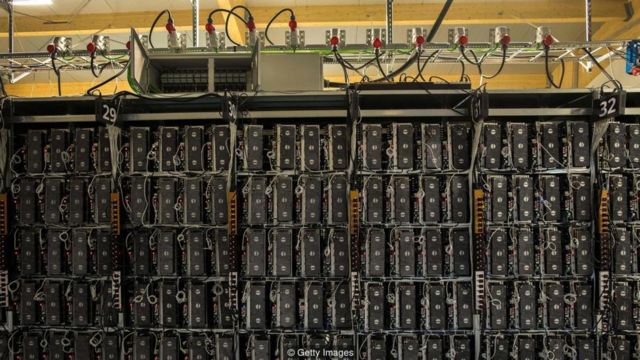
How does mining affect the environment?
According to an analysis by Cambridge University’s Centre for Alternative Finance (CCAF), if bitcoin were a country, it would consume more electricity per year than Finland, Switzerland or Argentina.
This is because the process of “mining” the cryptocurrency (using gigantic computers that never stop working) consumes a lot of energy.

The machines dedicated to “mine” or extract bitcoins are specialized computers that connect to the cryptocurrency network. Their job is to verify transactions made by people sending or receiving a currency, in a process that involves solving many mathematical puzzles.
Usually the reward for that work is low and only small amounts of money are obtained in comparison to all that is spent in order to obtain them. That is why the only way for mining to be a profitable process is to do it on a large scale, with huge energy consumption and computers working 24 hours a day every day.
That is why illegal cryptocurrency farms are installed in cities where electric power is cheap. They also seek to be in cities with frigid climates because the heat produced by the computers would make the cost of an air-conditioned area very expensive, thus cooling the equipment quickly and more cheaply.

One might think that with the advances that we have today with respect to renewable energy could solve this problem, and although it is a part of the possible solution that can be given, there is still much energy that is produced from fossil fuels such as gas, oil and coal, which are highly polluting and produce a very large carbon footprint.

Leave A Comment